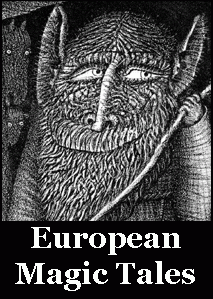A Name Remembered
In the 18th century’s beginning, northeastern Georgia produced immense quantities of tobacco, and production fell almost entirely on the backs of slaves. One plantation, said to produce “the best of the best”, was owned by family called Basilisk. For ages, they had mercilessly worked both soil and slave. In the interest of both accountability and efficiency, the Basilisks managed their plantation in an unorthodox fashion; instead of ordering slaves hither and thither day and night, they assigned particular slaves to particular plots. Those that were successful were treated favorably, and slept and ate in modest comfort. Those whose crops fared poorly were forced to sleep in dirt instead of straw, and ate food better suited for pigs than for slaves.
Three slaves in particular, all born at the Basilisk’s plantation, were especially concerned for their personal welfare. Each had experienced both the best and the worst, when their crops had been plentiful and been barren. Their names were Lucian, Andreas, and Horace. As they grew older, their bodies less capable in the heat of the day, one season they decided to rely not only on themselves to produce fair crops. This season, they enlisted the help aid of a witch, a widowed slave that had been cast out of the plantation because she could no longer work. Being well versed in the practices of her ancestors, she performed various works of magic, accepting Basilisk tobacco as payment. Many of the younger slaves had enlisted her services and prospered, and she, in turn, had acquired a modest stash of the best tobacco in the world.
Andreas and Horace felt no apprehension engaging in magical dealings. Lucian, however, felt differently.
“The church says it’s sinful!” argued Lucian. “What if God strikes us down with lighting?”
“Calm down, calm down,” Horace lazily replied.
“None of them younger slaves was struck down. I’m sure we’ll fare just ‘swell.” Andreas rebutted.
“And who’s to say,” asked Lucian, “that we won’t be the first?”
No longer entertained by his superstition, Horace and Andreas stopped answering his questions.
“We’re going to the witch tomorrow, because sleeping on the floor ain’t fun no more,” said Horace. “If you’d like t’come with us, y’may. If not, stay home. Enjoy sleepin’ on the floor.
That night, Lucian slept in constant discomfort, tossing and turning as sleep fled from his eyes. He decided that he would rather risk getting struck by God than sleeping on the floor again. “If I die,” he thought, “at least I might get a bed of straw in the afterlife.”
The next morning, with lingering uneasiness, Lucian accompanied his companions to the witch’s shack, sneaking through the fields with torsos bent and heads low. In the absence of a door, the witch hung a curtain in her doorway, likely only to keep the mosquitoes at bay. Like three children on the porch of a haunted house, the three men argued quietly about who would knock on the doorframe. After arguing failed to produce a consensus, they drew straws. To his dismay, Lucian pulled the shortest. Slowly and softly, he knocked on the shack’s doorframe.
“Come in,” said the witch, in a voice that was both quiet and raspy.
Upon the men’s entrance, she already knew what they wanted; she had noticed the scars on their backs from years of lashes, and knew they worked for the Basilisks. In the hands of Andreas was a small cotton square, filled with the sweet-smelling drug that the Basilisks produced.
“We tired of sleepin’ on floors,” said Horace. “We heard you could help.”
“So I can,” replied the witch. “And so I will.”
Andreas surrendered the tobacco to the witch. She inhaled the scent, and knew that she had received the correct currency.
The men watched her rummage through what little she had. She produced a bottle of green glass, tightly corked, to ensure its contents were never wasted. She grabbed a handful of dirt from a broken clay pot, and carefully sprinkled it with the bottle’s contents. She wrapped the moistened earth in cotton, handing it to Lucian.
“Throw this in your fields, and they’ll grow fine plants. The more you appreciate it, the more leaves will grow.”
The men nodded in understanding, bowed their heads in respect, and hurried back to the plantation. They divided the soil amongst themselves, and dispersed it in their plots. Over the next couple weeks, their plots produced the largest and finest plants in the state, and they were handsomely rewarded.
In their success, Andreas and Horace became sick with pride, babbling incessantly about their genius.
“That stupid witch,” Horace jeered, “she should’ve charged us more!”
Andreas laughed in agreement. “We gon’ eat good at the end of the season. It’s gon’ be great, just dandy, thanks to that ign’ant widow.”
Lucian sat silently. He was unimpressed by their disrespect, remembering that the witch had stressed appreciation.
“What about ‘er, Lucian?” Andreas asked. “Ain’t she stupid?”
Lucian scowled in disagreement, but said nothing. He decided he’d go the next morning and thank her, as he looked forward to receiving his bed of straw.
When he appeared at the witch’s doorway, just after the rooster’s crow, he found her already awake, working on a dirty piece of embroidery.
“Plants doin’ good?” she asked, not moving her eyes from her work.
“Yessum,” he answered. “I wanted to thank you.”
The witch laughed. “Good,” she said. “but your friends didn’t come?”
Lucian looked at the ground. “No ma’am,” he said. “They too proud for that.”
The witch exhaled with a smile. “What’s your name, boy?”
“Lucian,” he replied. “Yours, ma’am?”
“Maggie.”
“Thank you, Maggie.”
“Pleasure’s mine. Your crop’s gon’ do good. Your friends may not, but yours will. You’ve appreciated it; they’ve not done it. The three o’you slaves, but they gon’ feel more like slaves than you.”
Lucian bowed respectfully, though he did not understand. He thanked her again, using her name, and left. After his departure, he somberly realized that he’d never heard her name before, and that perhaps everyone had forgotten it.
In the weeks that followed, when harvest was about to begin, a swarm of crickets plagued all the plantations for miles. They ate everything, but undoubtedly preferred tobacco’s sweetness. The Basilisks’ crops were decimated. In corner of the plantation that Andreas, Lucian, and Horace oversaw, the damage was perhaps the most interesting. In Horace and Andreas’ plots, the insects had eaten the plants from the tips of the leaves to the stubs of the roots. Lucian’s plot, however, was unscathed, as if the grasshoppers had no eyes to see it.
Both perplexed and infuriated, Andreas and Horace sobbed in anguish, knowing that the Basilisks would treat them like rats until their death.
“What did you do,” they screamed, “that your plot was saved, and ours were not?!”
With grateful sobriety, Lucian replied: “I thanked the woman that you scorned. Because I appreciated what you did not, my plot was protected, and yours was laid waste.”
“That bitch,” Andreas shouted, “don’t even have a name to speak of!”
“She does,” Lucian replied calmly.
“Oh? Then tell us,” scoffed Horace.
“Maggie,” Lucian said while smiling. He knew that she had saved his plot, and was glad that he had thanked her.
At the end of the harvest, Lucian became a first-tier slave, and oversaw half the Basilisk’s land. Under his hand care, it prospered, and he made sure that Maggie always got the finest, freshest fruits of his labor.
Written by Brandon Geißendorf. Word Count: 1,249

